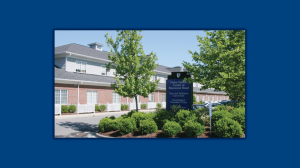Tyler's Hope Foundation's Support Elevates Duke Dystonia Center
This September, the Tyler’s Hope for a Dystonia Cure Foundation will officially recognize Duke Health as the country’s second Center of Excellence for Dystonia. This distinction reflects Duke’s growth as a national leader in dystonia patient care, education, and research as well as a continuing partnership with Tyler’s Hope to help everyone affected by this disease.
“Tyler’s Hope for a Dystonia Cure has already helped Duke reach a critical point in our ability to care for and understand dystonia,” said Nicole Calakos, MD, PhD, Lincoln Financial Group Distinguished Professor of Neurobiology and Neurology, and Division Chief of the Division of Movement Disorders. “Thanks to their help as a Center of Excellence we can advance promising research on therapies for dystonia, and deliver outstanding, state-of-the-art interdisciplinary care to every person with this condition.”
Tyler’s Hope for a Dystonia Cure Foundation has pledged $1,000,000 in financial support over the next seven years to further these missions. Duke is also securing funds from other donors wishing to support the Center of Excellence. Support from Tyler’s Hope will provide crucial funding for dystonia research to translate recent advances in our understanding of the condition into the potential development of disease-modifying therapies.
Dystonia, the third-most common movement disorder, causes prolonged and involuntary postures and slow, twisting movements that lead to motor disability and pain. There are no disease-modifying therapies for dystonia. In addition, diagnosis of dystonia is often delayed or missed because clinicians and patients are unaware of the condition and the different ways it can present.
To overcome these challenges, the Duke Movement Disorders Clinic has expanded the breadth and depth of care it offers to dystonia patients and found new ways to educate patients and clinicians. Dystonia patients coming to Duke have access to neurologists trained in movement disorders as well as physical, occupational and speech therapists, social workers, pharmacists, neurosurgeons and ear, nose, and throat specialists. This interdisciplinary team works with patients to manage their symptoms, make lifestyle adjustments, and decide on treatments that best meet that individual patient needs.
To help more people affected by dystonia learn about the condition and their potential treatment options, the Movement Disorders Clinic has created support groups, newsletters, and other events. Support provided to Duke from Tyler’s Hope will allow the Clinic to further expand these clinical and educational services.
Previous research from the Calakos lab supported by Tyler’s Hope has already identified a new disease mechanism behind dystonia and found drugs that target that mechanism and correct abnormalities in animal models of the disease. The Center of Excellence support will stimulate new research and engage new trainees in this important problem.
“We are extremely proud to award Dr. Calakos and her team at Duke University for their groundbreaking research into Dystonia. All the necessary components exist at Duke University to make the program a world leader and find a cure for my children and all who are affected,” said Rick Staab, President and Co-Founder of Tyler’s Hope.



